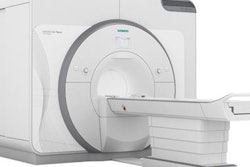Monday, November 26 | 10:30 a.m.-10:40 a.m. | SSC15-01 | Room E352
MRI-guided focused ultrasound (MRgFUS) offers a safe and effective alternative to surgery for men with intermediate-risk prostate cancer, Italian researchers have found.In this scientific session, presenter Dr. Andrea Leonardi of Sapienza University of Rome will share results from a study that evaluated the performance of MRgFUS in patients with organ-confined intermediate-risk prostate cancer for postponing or eliminating surgical treatment or radiation therapy.
The study included 19 patients with histologically confirmed prostate cancer. All patients underwent a baseline dynamic contrast-enhanced MRI exam and an MRgFUS treatment. The researchers evaluated the safety of MRgFUS by assessing the incidence and severity of any complications related to the device; they evaluated its clinical efficacy by tracking prostate-specific antigen (PSA) levels at three, six, and 12 months of follow-up.
Of the 19 patients, one reported urinary incontinence and two reported erectile dysfunction after the MRgFUS treatment. Dynamic contrast-enhanced MR imaging at each follow-up juncture revealed no recurrence or residual disease in any of the patients. Laboratory results showed a progressive decrease in PSA level, with an average value of 17 ng/mL before treatment and 2.2 ng/mL at the 12-month follow-up.
"MRgFUS can reduce the need for surgery or radiation therapy in patients with intermediate-risk prostate cancer," the team concluded.




.fFmgij6Hin.png?auto=compress%2Cformat&fit=crop&h=100&q=70&w=100)




.fFmgij6Hin.png?auto=compress%2Cformat&fit=crop&h=167&q=70&w=250)











